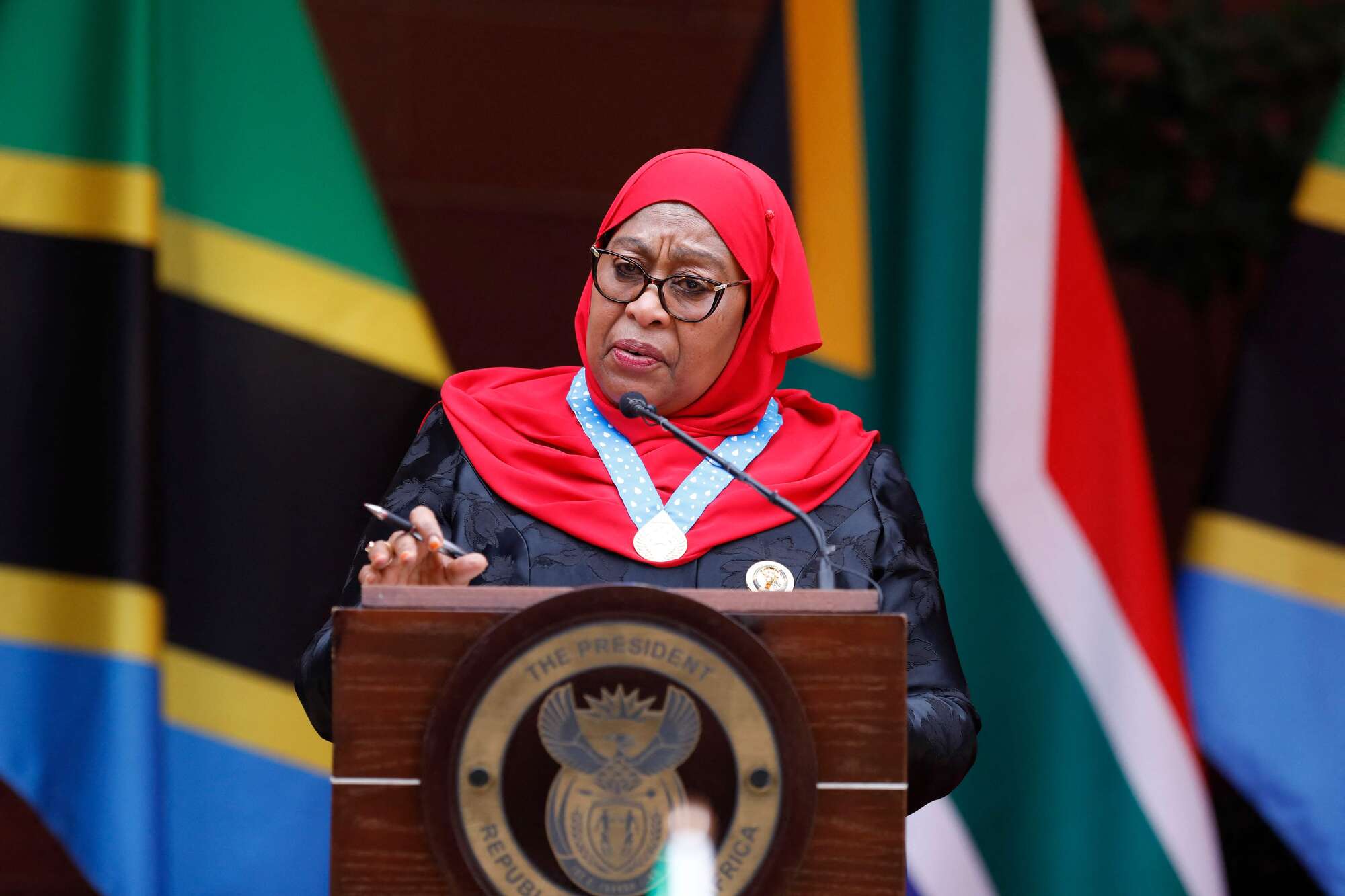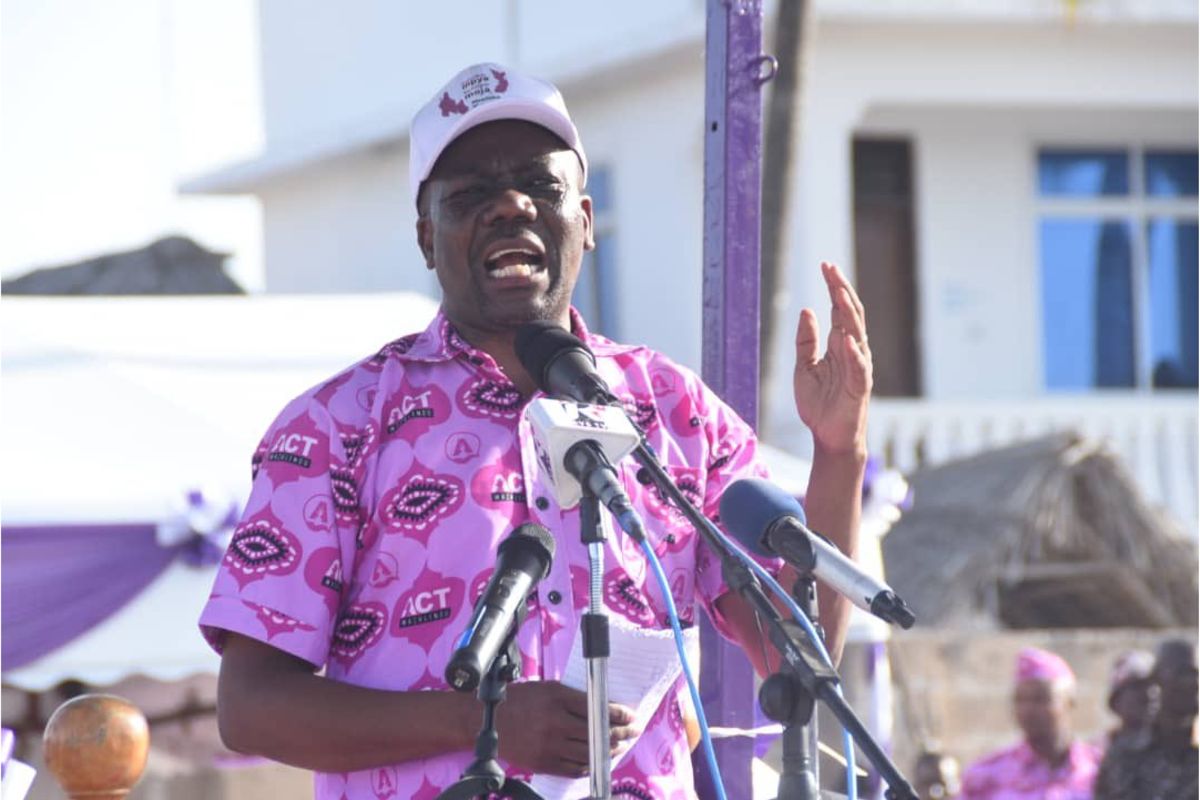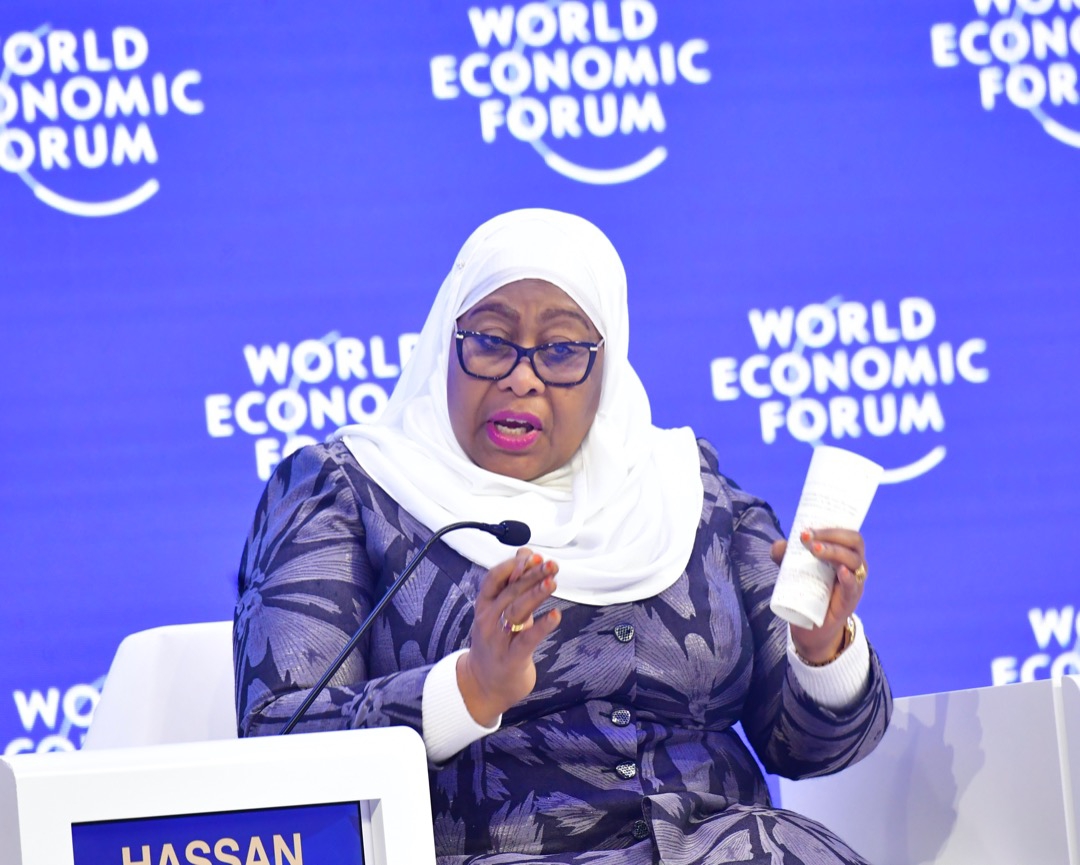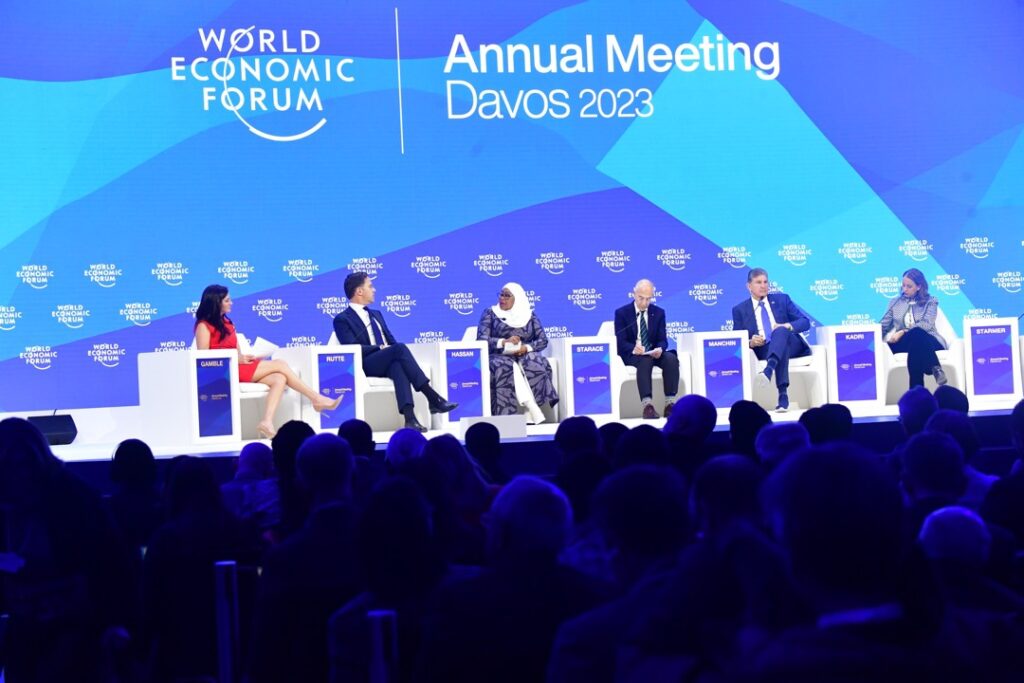PRESIDENT Samia Suluhu Hassan has called for collaborative efforts between governments and the private sector to mitigate and adapt to effects of climate change as well as steering the globe towards smooth energy transition.
The Tanzanian leader made the call in Davos, Switzerland, yesterday on the sidelines of the annual World Economic Forum (WEF) during a panel discussion with a title; “Repowering the World.”
“In Tanzania we are also affected by climate change and we have made changes to some of our policies to cope with the situation.
“We have been working with the private sector to mitigate effects of climate change. Tanzania is ready to invite private sector from other parts of the world since we have required resources and determination,” she commented.
Dr Samia pointed to the fact that collaborative efforts between countries will play a crucial role in addressing the challenge since some are blessed with technology while other countries endowed with resources.
President Samia noted further that it was high time developed countries in Europe and America put focus on producing energy from Africa.
“We need to diversify energy sources. Africa could be another source of energy, when it comes to green energy, we have almost everything ranging from nickel, cobalt and copper,” Ms Samia stated during the panel discussion.
Adding; “The private sector should extract resources and produce energy from Africa since there is high demand for energy, there is a lot of manufacturing and investments which are taking place in Africa.”
She also reached out to private sector in developed countries to provide funding for Africa to enable the continent to produce more energy from natural gas.
“It is true that we need energy transition but this should take some time, we also need funding to embark on energy transition,” Dr Samia appealed.
President Samia noted further that there is a high demand for energy in the African continent amid the fourth industrial revolution which is taking place across the globe.
She also urged African countries to put more efforts in strengthening regional power pools such as East African and Southern Africa power pools.
“We have also learned our lesson in Africa, we have had policies in regional power pools but we have not done enough.
“If we create these power pools there will be no problems of shortage of energy because whoever who will be having a crisis will be served by the regional power pools,” she remarked.
Dr Samia reminded leaders during the panel discussion that energy crisis is a global problem which requires global solutions, noting that; “There is a need on embarking on multilateral approach in addressing the challenge,” she pointed.
President Samia expressed concerns that many developed countries are formulating policies to address unilaterally rather than engaging developing countries.
Apart from President Samia, the panel discussion also included the Prime Minister of the Netherlands, Mr Mark Rutte, Chief Executive Officer of Enel S.p.A and Sir Rodney Starmer who is the leader of Labour Party leader of the opposition in Britain.
Also on the list were Ms Ilham Kadri who is a CEO and Chairperson of Board of Directors of Solvay, a Belgian chemicals company as well as American politician and businessman serving as the senior United States senator from West Virginia, Mr Joseph Manchin III.
The panel discussion was moderated by CNBC’s international correspondent and anchor, who is based in Abu Dhabi in the United Arab Emirates, Ms Hadley Gamble.
Speaking during the 27th edition of the United Nations Climate Change Conference (COP27) in Egypt last year, Dr Samia said Tanzania is taking a number of initiatives aimed at mitigating the impacts of climate change for sustainable development.
She said the government has already put in place the national climate change response strategy and contribution with a target of reducing green gas emission economy wide between 30 to 35 per cent by the year 2030.
According to her, showing the political will, Tanzania is continuing to construct and expand rapid transport networks that are expected to reduce more than 900 million tonnes of carbon generated each year.
Source: allafrica.com
Share this news
This Year’s Most Read News Stories

Will Tanzania agree to Starlink Internet Service?
Will the Tanzania government let Starlink, the world-famous internet service provider, operate in the country?Continue Reading

President Samia takes on Tanzania’s web of corruption
The President takes on the web of corruption in the Tanzanian government and quasi-government institutions flagged by the newest report by Controller & Auditor-General Charles Kichere. Continue Reading

Loud calls for investigation of Zanzibar port, ZSSF & airport
The leader of the ACT Wazalendo, Zitto Kabwe has raised three key issue that he said are hindering the economy of ZanzibarContinue Reading












